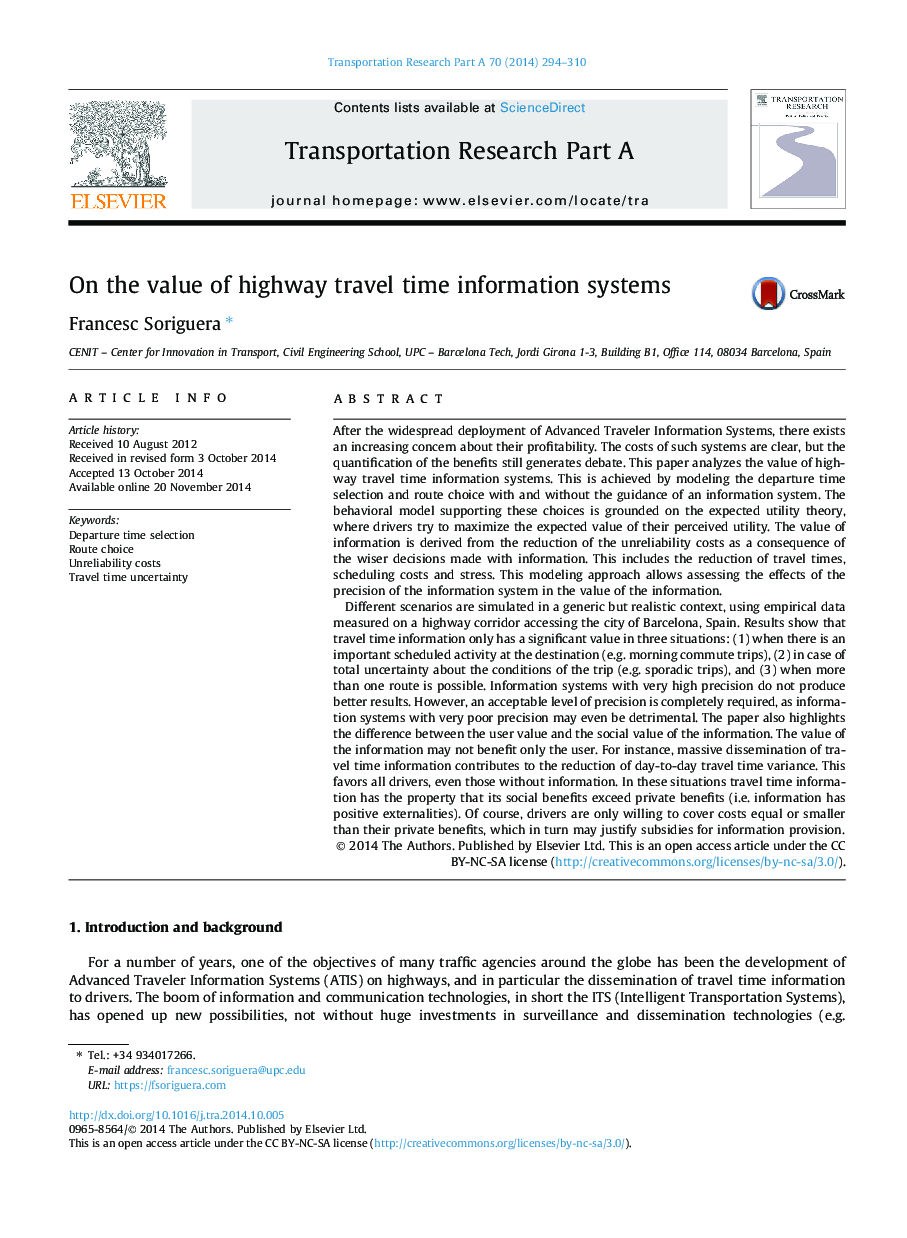| Article ID | Journal | Published Year | Pages | File Type |
|---|---|---|---|---|
| 6781486 | Transportation Research Part A: Policy and Practice | 2014 | 17 Pages |
Abstract
Different scenarios are simulated in a generic but realistic context, using empirical data measured on a highway corridor accessing the city of Barcelona, Spain. Results show that travel time information only has a significant value in three situations: (1) when there is an important scheduled activity at the destination (e.g. morning commute trips), (2) in case of total uncertainty about the conditions of the trip (e.g. sporadic trips), and (3) when more than one route is possible. Information systems with very high precision do not produce better results. However, an acceptable level of precision is completely required, as information systems with very poor precision may even be detrimental. The paper also highlights the difference between the user value and the social value of the information. The value of the information may not benefit only the user. For instance, massive dissemination of travel time information contributes to the reduction of day-to-day travel time variance. This favors all drivers, even those without information. In these situations travel time information has the property that its social benefits exceed private benefits (i.e. information has positive externalities). Of course, drivers are only willing to cover costs equal or smaller than their private benefits, which in turn may justify subsidies for information provision.
Keywords
Related Topics
Physical Sciences and Engineering
Engineering
Civil and Structural Engineering
Authors
Francesc Soriguera,
